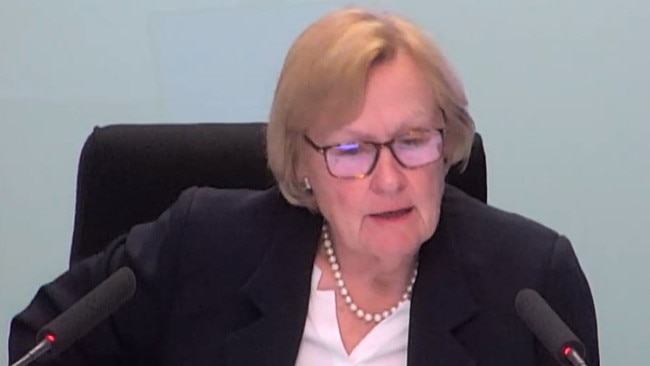Crown ‘turned a blind eye to gaping flaws’
There is a big difference in accepting gaping cultural and governance flaws exposed during a public inquiry and having the ‘open-mindedness to detect the problems for oneself and remedy them’.

There is a big difference in accepting gaping cultural and governance flaws exposed during a public inquiry and having the “open-mindedness to detect the problems for oneself and remedy them”.
These are the words of Commissioner Patricia Bergin SC after she completed her 18-month inquiry into Crown Resorts, which began following allegations that the company turned a blind eye to money laundering and ignored risks posed to staff in China, who were later arrested for breaching local gambling promotion laws.
Crown’s failure to detect serious problems in its corporate governance and culture was one of the reasons why Ms Bergin said the James Packer-backed gaming giant was not suitable to operate its $2.2bn complex at Barangaroo in Sydney.
“There is a big difference between acceptance of the existence of problems that beset Crown when confronted with them in a process such as this and having the culture and open-mindedness to detect the problems for oneself and remedy them.
“At the conclusion of the public hearings, Crown still suffered from the absence of the ability in this latter regard. In any process of conversion to suitability, Crown will have to work much harder on this aspect of its existence.”
Ms Bergin clearly thinks culture is important, as most listed companies do: in annual reports and AGMs it takes a fair bit of air time, but it needs to be more than motherhood statements and lists of what constitutes a company’s values.
For Ms Bergin, fostering a good culture and corporate governance depends on people simply “doing their jobs properly”.
At Crown, she said, “a positive culture of compliance and proactivity is absolutely fundamental in respect of both ensuring an effective money-laundering regime and in managing the tension between revenue pressure and the requirement for compliance with regulatory regimes”.
The company had one problem, however — its major shareholder. Mr Packer accepted he was at least responsible for “some” of the profit-seeking and risk-taking culture of the company.
Ms Bergin noted it was the culture of the VIP International Business Unit that led to 19 of Crown’s China staff being arrested in 2016.
“Crown’s complacency in respect of the identified serious risks was indicative of a very confident culture that had developed within the VIP International Business Unit,” Ms Bergin said.
“Mr Packer accepted that as executive chairman of Crown between 2007 and 2015, he led the company ‘with a powerful personality’. He tentatively accepted that during that same period, those in managerial positions were motivated to please him.”
It was under John Alexander’s stewardship as chief executive and chairman from February 2017 to January 2020 that Ms Bergin said “led Crown to disastrous consequences. Mr Alexander’s perception of his relationship with Mr Packer was either blind to the reality or lacking in candour.
“Mr Alexander was fulfilling two roles and it is apparent that he could not or would not see the reality of being managed remotely by Mr Packer. As one director of Crown observed in January 2020, although it would be hard to think of ‘anyone more loyal’ to Mr Packer than Mr Alexander, ‘running a high-profile public company’ was not his ‘strong suit’.”
The tide has begun to turn under Helen Coonan, who replaced Mr Alexander as chairman last January. Ms Bergin said Ms Coonan’s evidence during the inquiry demonstrated “that her character, honesty and integrity has not been and could not be called into question”.
As Crown seeks to revive its fortunes at Barangaroo, it will have to start thinking, and acting, very quickly.


